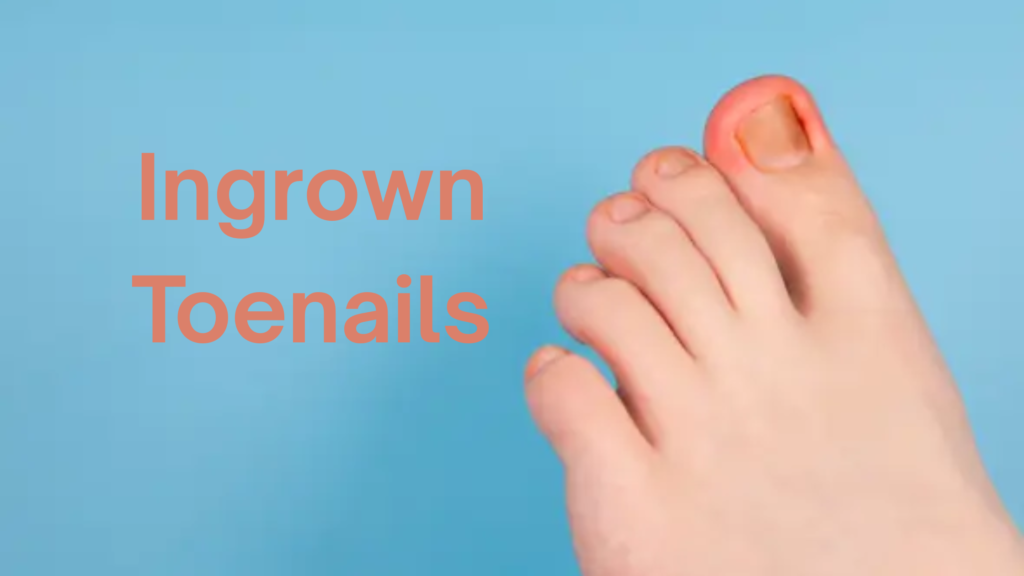An ingrown toenail occurs when the edge of a toenail grows into the surrounding skin, usually on the big toe. This can cause pain, swelling, redness, and sometimes infection.
🔍 Causes:
- Improper nail trimming (cutting nails too short or rounding the edges)
- Tight-fitting shoes or socks
- Injury to the toe
- Genetic factors (naturally curved nails)
- Poor foot hygiene
- Repeated pressure (e.g., from sports or heavy activity)
⚠️ Symptoms:
- Pain or tenderness along the nail edge
- Redness and swelling
- Warmth in the affected area
- Pus or drainage (if infected)
- Skin growing over the nail edge
🏠 Home Treatment (for mild cases):
- Soak the foot in warm, soapy water 2–3 times a day (15–20 mins)
- Gently lift the nail edge and place cotton or dental floss underneath
- Apply antiseptic and keep the toe clean and dry
- Wear open-toed or loose-fitting shoes
- Take pain relievers (e.g., ibuprofen or acetaminophen)
🩺 Medical Treatment (for moderate to severe or infected cases):
- Drainage of pus or infected tissue
- Partial nail removal (if recurring or deeply ingrown)
- Antibiotics for infection
- Nail matrix removal (to prevent regrowth in severe/chronic cases)
🛡️ Prevention Tips:
- Cut toenails straight across, not rounded
- Don’t cut nails too short
- Wear properly fitting footwear
- Keep feet clean and dry
- Avoid trauma to the toes
❗ When to See a Doctor:
- Signs of infection (pus, increasing pain, swelling, red streaks)
- Diabetes or poor circulation (higher risk of complications)
- Recurring ingrown nails
